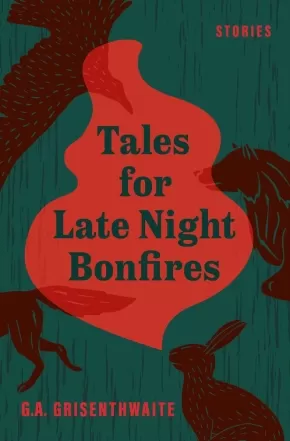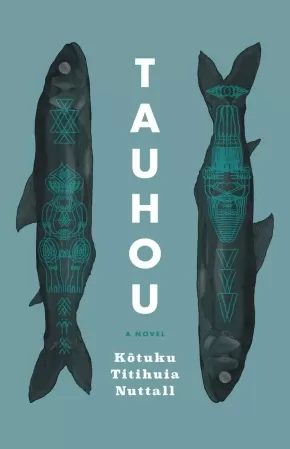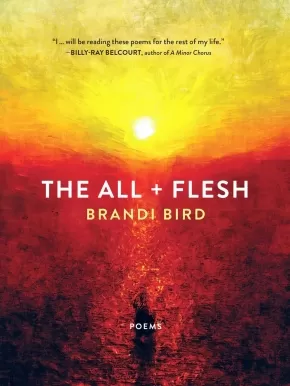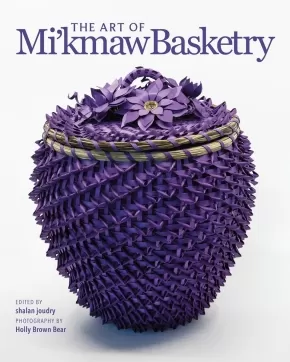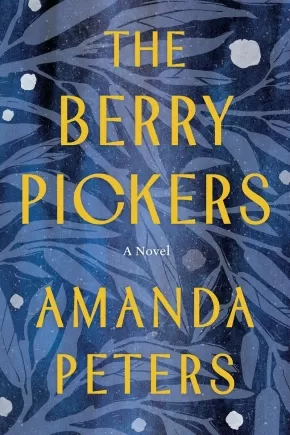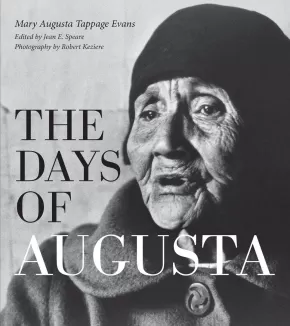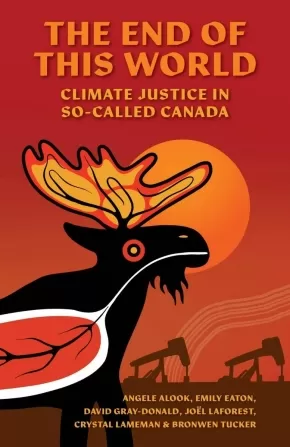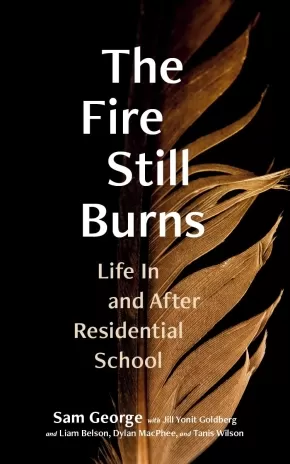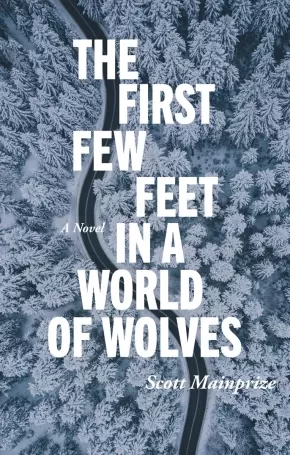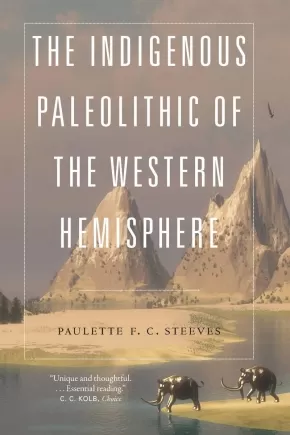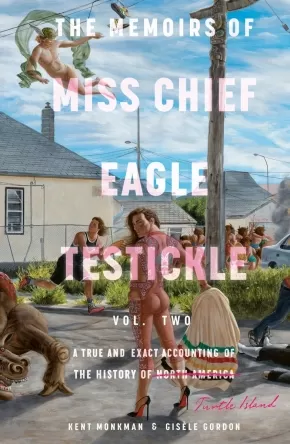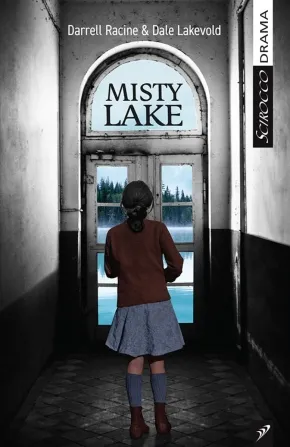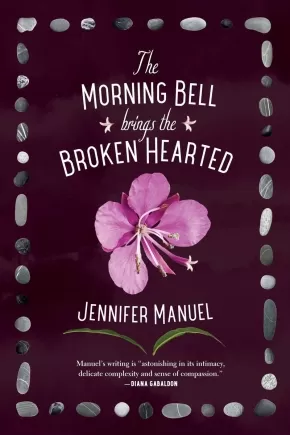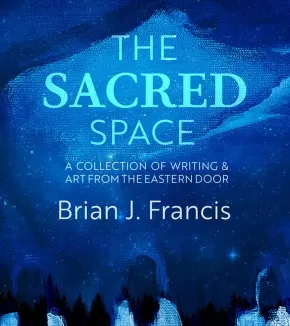
First Nations
226
-
240
of
786 Results;
Sort By
Go To
of 53
Tales for Late Night Bonfires
$22.95
Format:
Paperback
Text Content Territories:
Indigenous Canadian; First Nations; Salish; Interior Salish; Nlaka'pamux (Thompson);
Reading Level: N/A
ISBN / Barcode: 9781990601378
Synopsis:
Synopsis:
Curious, uncanny tales blending Indigenous oral storytelling and meticulous style, from an electric voice in Canadian fiction.
These are stories that are a little bit larger than life, or maybe they really happened. Tales that could be told 'round the campfire, each one-upping the next. Tales about a car that drives herself, ever loyal to her owner. Tales about an impossible moose hunt. Tales about the Real Santa(TM) mashed up with the book of Genesis, alongside SPAM stew and bedroom sets from IKEA.
G.A. Grisenthwaite's writing is electric and inimitable, blending meticulous literary style with oral storytelling and coming away with a voice that is entirely his own. Tales for Late Night Bonfires is truly one of a kind, and not to be missed.
Reviews
"Tales for Late Night Bonfires is funny, dark, and rich all at once; each story is immense and alive. Grisenthwaite shows us what fiction can be when story leads the way." - QUILL & QUIRE starred review
"With his first book, Home Waltz, G.A. Grisenthwaite had arrived. With Tales for Late Night Bonfires, he has fully moved in. His writing is so vivid and fresh that the reader inhabits his characters, in their homes, on the land, in their talking cars. Gord has a great gift for dialogue and he writes with flinty humour and such love. I felt more completely human when I finished this book." - SHELAGH ROGERS founding host and co-creator, The Next Chapter, CBC Radio
"Grisenthwaite is a master storyteller, with a voice capable of roasting us and all the other ‘two-leggeds’ while keeping us at the bonfire, hungry for more. The lives of these unforgettable characters are at once comic and heart-crushing, precarious and buoyed by the undying embrace of interlaced dimensions, imbricate worlds." - SUSAN HOLBROOK author of Throaty Wipes and Ink Earl
"Gordon has a voice that is authentic campfire. I felt like I was holding a mug of tea in one hand, and enjoying a fish fry with the other - while waiting for his words to paint a vibrant canvas of characters. Sitting around the campfire, and ingesting memory with stories that need to be told, and retold. These stories visit places in the heart, where we each share, words that need to be said, words that beg to be read." - CAROL ROSE GOLDENEAGLE author of Bearskin Diary and Essential Ingredients
Additional Information
232 pages | 5.25" x 8.00" | Paperback
Tauhou: A Novel
$24.99
Text Content Territories:
Indigenous Canadian; First Nations; Salish; Coast Salish; Saanich (WSANEC); Indigenous New Zealander; Maori; Ngati Tuwharetoa; Te Ati Awa;
Reading Level: N/A
ISBN / Barcode: 9781487011697
Synopsis:
Synopsis:
Dear grandmother, I am writing this song, over and over again, for you. I am a stranger in this place, he tauhou ahau, reintroducing myself to your land.
Tauhou is an inventive exploration of Indigenous families, womanhood, and alternate post-colonial realities by Kotuku Titihuia Nuttall, a writer of Maori and Coast Salish descent. This innovative hybrid novel envisions a shared past between two Indigenous cultures, set on reimagined versions of Vancouver Island and Aotearoa New Zealand that sit side by side in the ocean.
Each chapter is a fable, an autobiographical memory, a poem. A monster guards cultural objects in a museum, a woman uncovers her own grave, another woman remembers her estranged father. On rainforest beaches and grassy dunes, sisters and cousins contend with the ghosts of the past - all the way back to when the first foreign ships arrived on their shores.
In a testament to the resilience of Indigenous women, the two sides of this family, Coast Salish and Maori, must work together in understanding and forgiveness to heal that which has been forced upon them by colonialism. Tauhou is an ardent search for answers, for ways to live with truth. It is a longing for home, to return to the land and sea.
Reviews
"Tauhou is a search for answers, of finding ways to live with the truth. Some of the stories are like fables, others like poetry, and all are a sheer joy to read. A longing for home resonates, a gift for those of us searching for our island also."— Kete Books
"This one's for the lovers of language, lean prose-poetry you can dip in and out of and think about for hours. Best read beside a large body of water."— Woman Magazine
"Brilliantly written in the best of Maori and Coast Salish practices of story, Tauhou is teeming with possibility, love, and dreaming otherwise." — Leanne Betasamosake Simpson, author of Noopiming: The Cure for White Ladies
"Kotuku Titihuia Nuttall takes threads made from all the colours of the Indigenous experience and crosses them over oceans, cultures, and time." — Tayi Tibble, author of Poukahangatus and Rangikura
"Kotuku Titihuia Nuttall's Tauhou is a brilliant example of what language can do when forged with intentional hands and a fantastic mind. Nuttall's work binds words in a way that doesn't hold too tightly but steadfastly contains the many Ancestors present in Nuttall's life and work, weaving together a tapestry of nuance and witnessing. Masterful dialogue and rich scenes move emotions like the currents around Aotearoa and the Salish Seas, a beautiful display of lyricism that loudly proclaims that Kotuku Titihuia Nuttall belongs in the crescendo of rising voices in CanLit. Tauhou is not a collection to miss!" — jaye simpson, author of it was never going to be okay
"The stories in this collection move like the waves of the ocean that divide Vancouver Island and Aotearoa. Once you emerge from Tauhou's narrative depths, you'll miss its imagination, its rhythms, its heart." — Alicia Elliott, author of A Mind Spread Out on the Ground
Educator Information
Includes a SENĆOŦEN glossary, a Te Reo Māori glossary, an Author's Notes and Acknowledgements.
Curriculum Connections: Indigenous Studies
Additional Information
224 pages | 5.00" x 7.75" | Hardcover
The All + Flesh: Poems
$19.99
Format:
Paperback
Text Content Territories:
Indigenous Canadian; First Nations; Anishinaabeg; Ojibway; Saulteaux; Cree (Nehiyawak); Métis;
Reading Level: N/A
ISBN / Barcode: 9781487011826
Synopsis:
Synopsis:
Brandi Bird's frank, transcendent poetry explores the concepts of health, language, place, and memory in this long-anticipated debut collection.
Brandi Bird's long-anticipated debut poetry collection, The All + Flesh, explores the concepts of health, language, place, and memory that connect its author to their chosen kin, blood relatives, and ancestral lands. By examining kinship in broader contexts, these frank, transcendent poems expose binaries that exist inside those relationships, then inspect and tease them apart in the hope of moving toward decolonial future(s). Bird's work is highly concerned with how outer and inner landscapes move and change within the confines of the English language, particularly the "I" of the self, a tradition of movement that has been lost for many who don't speak their Indigenous languages or live on their homelands. By exploring the landscapes the poet does inhabit, both internally and externally, Bird's poems seek to delve into and reflect their cultural lineages-specifically Saulteaux, Cree, and Métis-and how these transformative identities shape the person they are today.
I am made of centuries & carbohydrates
the development of my molars
the hunger the teeth grew
has been with me since childhood
I can't escape the mouths of others
Awards
- 2024 Poetry in English, Indigenous Voices Awards
Reviews
"Since hearing Brandi Bird at a reading in a park in summertime recite the lines, "I know / then that there is hope / until I die & then / there is other / people's hope," I have thought about them many times, they have merged with my own consciousness. That's the power of Bird's poems-they resonate at such a visceral and cerebral level that they become a part of you. The All + Flesh marks the arrival of an endlessly moving and astounding voice in Indigenous poetry. I, for one, will be reading these poems for the rest of my life." — Billy-Ray Belcourt, author of A MINOR CHORUS
"In The All + Flesh, Brandi Bird maps the psychic space between 'NDN compartmentalization' and split prairies, from bus depots to 'endocrine storms,' from LiveJournal to a living history of relocation under land theft. 'My body is not an empire but first contact happened at / birth' and 'I eat / until my mouth needles / the dark.' With exacting lucidity, Bird's lyrics chart the body as a reservoir for colonial malice, a site of resistance, and a conduit for a voice that is visceral, immediate, and uncompromising. An absolute triumph of a debut."— Liz Howard, author of Letters in a Bruised Cosmos
"A stunning collection with carefully crafted, searing poems that refuse artifice, indirectness, and voyeurism. Brandi Bird writes the experience of illness and Indigeneity into a world that accepts illness only if it perpetuates colonial beauty and body standards, then interrogates the racist systems that disallow care and compassion for Indigenous people. These poems are tender and surprising; they are holes travelling through time and space. They are able to shapeshift God into pills, prayers, seeds, and stars. The All + Flesh has taken root in my mind and I'm happy to let it grow there." — Jessica Johns, author of Bad Cree
Additional Information
96 pages | 6.00" x 8.00" | Paperback
The Art of Mi'kmaw Basketry
$24.95
Artists:
Format:
Paperback
Reading Level: N/A
ISBN / Barcode: 9781459507210
Synopsis:
Synopsis:
Mi’kmaw artists are creating a wide range of imaginative and beautiful work using the skills and traditions of basketry weaving given to them by their elders and ancestors. In this book, nine artists present their work and their stories in their own words. Their unique artistic practices reflect their relationships to the natural world around them and their abilities to create unique and beautiful objects using a mix of traditional and contemporary materials and forms.
Each artist's account of their background and practice is introduced by editor shalan joudry. Their words stand alongside examples of their art, photographed in their studios by Holly Brown Bear.
This book is a milestone in creating awareness of and celebrating a group of important contemporary artists working today in Mi’kma'ki, the traditional territory which embraces Nova Scotia, New Brunswick, Prince Edward Island and portions of Quebec.
Featured artists:
- Peter Clair, Elsipogtog First Nation, New Brunswick.
- Virick Francis, Eskasoni First Nation, Nova Scotia.
- Stephen Jerome, Gesgapegiag, Quebec.
- Della Maguire, Glooscap First Nation, Nova Scotia.
- Frank Meuse, L'sittkuk First Nation (Bear River), Nova Scotia.
- Margaret Peltier, We'koqma'q First Nation, Nova Scotia.
- Sandra Racine, Elsipogtog First Nation, New Brunswick.
- Nora Richard, Lennox Island, Prince Edward Island.
- Ashley Sanipass, Indian Island, New Brunswick.
Additional Information
10.00" x 8.03" | Paperback | 100+ Colour Photographs
The Berry Pickers: A Novel
$25.99
Format:
Paperback
Text Content Territories:
Indigenous Canadian; First Nations; Mi'kmaq;
Reading Level: N/A
ISBN / Barcode: 9781443468183
Synopsis:
Synopsis:
A four-year-old girl goes missing from the blueberry fields of Maine, sparking a tragic mystery that will remain unsolved for nearly fifty years
July 1962. A Mi’kmaq family from Nova Scotia arrives in Maine to pick blueberries for the summer. Weeks later, four-year-old Ruthie, the family’s youngest child, vanishes mysteriously. She is last seen by her six-year-old brother, Joe, sitting on her favourite rock at the edge of a berry field. Joe will remain deeply affected by his sister’s disappearance for years to come.
In Boston, a young girl named Norma grows up as the only child of an affluent family. Her father is emotionally distant, her mother frustratingly overprotective. Norma is often troubled by recurring dreams and visions that seem more like memories than imagination. As she grows older, Norma slowly comes to realize there is something her parents aren’t telling her. Unwilling to abandon her intuition, she will spend decades trying to uncover this family secret.
A stunning debut by a vibrant new voice in fiction, The Berry Pickers is a riveting novel about the search for truth, the shadow of trauma and the persistence of love across time.
Reviews
“Amanda Peters manages to take you home to the East Coast in the very best ways – through family love and personal grief and the precious accounting of minutes and memories. You cannot help but love these characters from the first chapter. They stay with you long after the last page.” — Cherie Dimaline, bestselling author of The Marrow Thieves
“The Berry Pickers is an intimate story about the destruction wreaked on a family when their youngest child goes missing. Peters brilliantly crafts a multi-layered tale about how one irrational act creates irrevocable harm that ripples through multiple lives, including the lives of the perpetrators. This is an emotional novel that is beautifully rendered. An amazing read from a talented new voice.” — Michelle Good, bestselling author of Five Little Indians
“A marvelous debut. The Berry Pickers has all the passion of a first book but also the finely developed skill of a well-practiced storyteller. The Berry Pickers is a triumph.” — Katherena Vermette, bestselling author of The Break
Additional Information
320 pages | 6.00" x 9.00" | Paperback
The Days of Augusta
$24.95
Artists:
Editors:
Format:
Paperback
Text Content Territories:
Indigenous Canadian; First Nations; Salish; Interior Salish; Secwepemc (Shuswap);
Reading Level: N/A
ISBN / Barcode: 9781990776489
Synopsis:
Synopsis:
Hailed as a contemporary classic of oral literature, The Days of Augusta is Shuswap elder Augusta Evans’ memories of a lifetime that spanned from 1888 to 1978.
Accompanied by Robert Keziere’s intimate photographs, Augusta’s rhythmic prose reads like poetry. She depicts with strength and eloquence her own story—her days at the Mission School, making baskets and catching salmon, the pain of giving birth and the death of a son—as well as the legends and stories of events told to her—a stagecoach robbery, a woman who was the prisoner of a bear. First printed in 1973, Augusta’s story continues to be a fascinating glimpse into the past, with throughlines to the present.
Additional Information
80 pages | 8.00" x 9.00"| 25 b&w photos | Paperback
The End of This World: Climate Justice in So-Called Canada
$25.95
Format:
Paperback
Text Content Territories:
Indigenous Canadian;
Reading Level: N/A
ISBN / Barcode: 9781771136129
Synopsis:
Synopsis:
The climate crisis is here, and the end of this world—a world built on land theft, resource extraction, and colonial genocide—is on the horizon. In this compelling roadmap to a livable future, Indigenous sovereignty and climate justice go hand in hand.
Drawing on their work in Indigenous activism, the labour movement, youth climate campaigns, community-engaged scholarship, and independent journalism, the six authors challenge toothless proposals and false solutions to show that a just transition from fossil fuels cannot succeed without the dismantling of settler capitalism in Canada. Together, they envision a near future where oil and gas stay in the ground; where a caring economy provides social supports for all; where wealth is redistributed from the bloated billionaire class; and where stolen land is rightfully reclaimed under the jurisdiction and sovereignty of Indigenous peoples.
Packed with clear-eyed analysis of both short- and long-term strategies for radical social change, The End of This World promises that the next world is within reach and worth fighting for.
Reviews
“The End of This World gifts readers with a mapping of a communal future grounded in Indigneous concepts of caring, relationship, solidarity, and a sharp analysis of the present. It is a gathering space, an experiment, and an invitation towards building formations of life outside of the cage of colonialism and capitalism. Engaging, timely, and crucial, I am so grateful this book exists, and for the futures it will inspire."— Leanne Betasamosake Simpson, co-author of “Rehearsals for Living”
"This book is a major and much-needed contribution to the climate conversation in Canada. The collective behind it embodies the very politics necessary to win a just transition that is worthy of the name: Indigenous-led, internationalist, rooted in solidarity, and crackling with moral clarity. The End of This World advances a holistic, radically reasonable vision of a future worth fighting for—and the authors have tallied the receipts for that glorious moment when the perpetrators of planetary arson get served the bill.”— Avi Lewis, co-author of “The Leap Manifesto”
Additional Information
240 pages | 5.50" x 8.50" | Paperback
The Fire Still Burns: Life In and After Residential School
$21.95
Format:
Paperback
Text Content Territories:
Indigenous Canadian; First Nations; Salish; Coast Salish; Squamish;
Reading Level: N/A
ISBN / Barcode: 9780774880855
Synopsis:
Synopsis:
“My name is Sam George. In spite of everything that happened to me, by the grace of the Creator, I have lived to be an Elder.”
The crimes carried out at St. Paul’s Indian Residential School in North Vancouver scarred untold numbers of Indigenous children and families across generations. Sam George was one of these children. This candid account follows Sam from his idyllic childhood growing up on the Eslhá7an (Mission) reserve to St. Paul’s, where he weathered physical, emotional, and sexual abuse. He spent much of his life navigating the effects of this trauma – prison, addiction, and challenging relationships – until he found the strength to face his past. Now an Elder and educator with the Indian Residential School Survivors Society, this is Sam’s harrowing story, in his own words. An ember of Sam’s spirit always burned within him, and even in the darkest of places he retained his humour and dignity.
The Fire Still Burns is an unflinching look at the horrors of a childhood in the Indian Residential School system and the long-term effects on survivors. It illustrates the healing power of one’s culture and the resilience that allows an individual to rebuild a life and a future.
This frank and powerful personal story of trauma and resilience will bring a greater understanding to all readers – Indigenous and non-Indigenous alike – of residential schools and the impact they had on those who were forced to attend them.
Reviews
"I am glad that Sam George has lent his voice to the many voices of survivors now surfacing from residential "schools". I love the way Sam describes his traditional life before he was forced to go to the school and then later goes back to his culture to overcome the trauma he endured. Sam did time in jail for a crime he committed, but the real crime is that our Indigenous way of life was interfered with, and that created the dysfunction in our communities. This book shows that we had it right all along – Indigenous culture is our saviour."— Bev Sellars, author of They Called Me Number One: Secrets and Survival at an Indian Residential School
"Brutally frank yet disarmingly subtle, sensitive, and funny, The Fire Still Burns by Sam George offers an unflinching look at the human dimensions of Canada’s attempted genocide of Indigenous Peoples through residential schooling." — Sam McKegney, author of Carrying the Burden of Peace: Reimagining Indigenous Masculinities through Story
Educator Information
Table of Contents
Preface / Sam George
Acknowledgments
A Note on the Text
1 Your Name Is T'seatsultux
2 In Them Days
3 Our Lives Signed Away
4 The Strap
5 A Girl Named Pearl, a Boy Named Charlie
6 Runaway
7 I Tried to Be Invisible
8 Finding Ways to Feel Good
9 On Our Own
10 Oakalla
11 Haney Correctional
12 Longshoreman
13 Misery Loves Company
14 Drowning
15 Tsow-Tun Le Lum
16 I’m Still Here
Afterword: On Co-Writing Sam George’s Memoir / Jill Yonit Goldberg
Reader’s Guide
About the Authors
Additional Information
152 pages | 5.00" x 8.00" | Paperback
The First Few Feet in a World of Wolves
$24.95
Format:
Paperback
Text Content Territories:
Indigenous Canadian; First Nations; Anishinaabeg; Algonquin; Inuit;
Reading Level: N/A
ISBN / Barcode: 9781998779093
Synopsis:
Synopsis:
The First Few Feet in a World of Wolves chronicles the fictionalization of the year the author spent teaching in Aupaluk (a remote Inuit community on the Ungava Coast of Nunavik). The story outlines, and explores, the history of oppression experienced by the more than five hundred Indigenous nations across northern Turtle Island at the hands of the Canadian government since the Royal Proclamation.
Told through the voice of Nomad, who finds himself very much at odds with the land itself. Nomad slowly learns how to reconnect with his fractured history as he embraces and is embraced by the Elders and his own students. Told is crisp, spare prose, this debut novel brings forward a powerful new Indigenous voice to the literary landscape.
Reviews
"Speaking in a voice that is both powerful and playful, Scott Mainprize weaves a thoughtful investigation into the Indigenous Peoples' oppression through the eyes of his fictional character, Nomad. And we discover as Nomad discovers that the art of storytelling is a way towards healing and reconciliation." - Mary Barnes, author of Moving Upstream
Additional Information
350 pages | 8.00" x 5.00"| Paperback
The Indigenous Paleolithic of the Western Hemisphere
$40.95
Format:
Paperback
Text Content Territories:
Indigenous;
Reading Level: N/A
ISBN / Barcode: 9781496234704
Synopsis:
Synopsis:
The Indigenous Paleolithic of the Western Hemisphere is a reclaimed history of the deep past of Indigenous people in North and South America during the Paleolithic. Paulette F. C. Steeves mines evidence from archaeology sites and Paleolithic environments, landscapes, and mammalian and human migrations to make the case that people have been in the Western Hemisphere not only just prior to Clovis sites (10,200 years ago) but for more than 60,000 years, and likely more than 100,000 years.
Steeves discusses the political history of American anthropology to focus on why pre-Clovis sites have been dismissed by the field for nearly a century. She explores supporting evidence from genetics and linguistic anthropology regarding First Peoples and time frames of early migrations. Additionally, she highlights the work and struggles faced by a small yet vibrant group of American and European archaeologists who have excavated and reported on numerous pre-Clovis archaeology sites.
In this first book on Paleolithic archaeology of the Americas written from an Indigenous perspective, The Indigenous Paleolithic of the Western Hemisphere includes Indigenous oral traditions, archaeological evidence, and a critical and decolonizing discussion of the development of archaeology in the Americas.
Reviews
"The Indigenous Paleolithic of the Western Hemisphere offers a refreshing perspective of the peopling of what was once called the New World."—Justin A. Holcomb and Curtis N. Runnels, Journal of Island and Coastal Archaeology
"I want people to read this exciting book and challenge our own assumptions about what we know about Indigenous people's past. Reading books such as this one is important if archaeologists are to confront their own troubling history and challenge themselves to tell different stories which celebrate Indigenous people, their land, and their own ideas about where they come from."—Matthew E. Hill, Journal of the Iowa Archeological Society
“Writing in the vein of scholars such as Vine Deloria Jr., Paulette Steeves’s critique of the ‘Clovis-first’ model of peopling of the Americas both engages with and moves beyond current ideas about how and when people first came to these lands. The research presented in this book questions the ways archaeologists have traditionally constructed narratives of movement and arrival without considering Indigenous ways of knowing. This is an important and timely contribution to the field.”—Kisha Supernant (Métis), associate professor of anthropology at the University of Alberta
“A timely analysis of the ethnocentric influences on past and present scientific inquiry and archaeological practice from the perspective of an Indigenous archaeologist. Steeves brings together a host of voices espousing the importance of contextual relationships in hypothesis development and archaeological analysis.”—Kathleen Holen, director of the Center for American Paleolithic Research
“Written from an essential Indigenous perspective, this insightful book examines the existence of First Peoples in the Western Hemisphere for at least 50,000+ years longer than previously accepted and uncovers the reasons this theory has been dismissed for decades.”—Karla Strand, Ms. Magazine
Additional Information
328 pages | 6.00" x 9.00" | 2 photographs, 8 illustrations, 5 maps, 7 tables, 1 appendix, index | Paperback
The Memoirs of Miss Chief Eagle Testickle: Vol. 2: A True and Exact Accounting of the History of Turtle Island (HC) (3 in Stock)
$44.00
Format:
Hardcover
Text Content Territories:
Indigenous Canadian; First Nations; Cree (Nehiyawak);
Reading Level: N/A
ISBN / Barcode: 9780771006470
Synopsis:
Synopsis:
From global art superstar Kent Monkman and his longtime collaborator Gisèle Gordon, a transformational work of true stories and imagined history that will remake readers' understanding of the land called North America.
For decades, the singular and provocative paintings by Cree artist Kent Monkman have featured a recurring character—an alter ego of sorts, a shape-shifting, time-travelling elemental being named Miss Chief Eagle Testickle. Though we have glimpsed her across the years, and on countless canvases, it is finally time to hear her story, in her own words. And, in doing so, to hear the whole history of Turtle Island anew. The Memoirs of Miss Chief Eagle Testickle: A True and Exact Accounting of the History of Turtle Island is a genre-demolishing work of genius, the imagined history of a legendary figure through which a profound truths emerge—a deeply Cree and gloriously queer understanding of our shared world, its past, its present, and its possibilities.
Volume Two, which takes us from the moment of confederation to the present day, is a heartbreaking and intimate examination of the tragedies of the nineteenth and twentieth century. Zeroing in on the story of one family told across generations, Miss Chief bears witness to the genocidal forces and structures that dispossessed and attempted to erase Indigenous peoples. Featuring many figures pulled from history as well as new individuals created for this story, Volume Two explores the legacy of colonial violence in the children’s work camps (called residential schools by some), the Sixties Scoop, and the urban disconnection of contemporary life. Ultimately, it is a story of resilience and reconnection, and charts the beginnings of an Indigenous future that is deeply rooted in an experience of Indigenous history—a perspective Miss Chief, a millennia-old legendary being, can offer like none other.
Blending history, fiction, and memoir in bold new ways, The Memoirs of Miss Chief Eagle Testickle are unlike anything published before. And in their power to reshape our shared understanding, they promise to change the way we see everything that lies ahead.
Additional Information
264 pages | 6.79" x 10.26" | Hardcover
The Misty Lake
$17.95
Format:
Paperback
Text Content Territories:
Indigenous Canadian; First Nations; Dene; Métis;
Reading Level: N/A
ISBN / Barcode: 9781990738302
Synopsis:
Synopsis:
Misty Lake tells the story of a young Metis journalist from Winnipeg who travels to a Dene reserve in Northern Manitoba to conduct an interview with a former residential school student. What Mary imparts in her interview will change Patty's life profoundly, allowing the journalist to make the connections to her own troubled life in the city. Patty knows that her Metis grandmother went to residential school when she was a girl. But Patty hasn't understood until now that she's inherited the traumatic legacy of residential school that was passed down to her mother from her grandmother. With this new understanding, Patty embarks on a healing journey. It will take her to the Dene fishing camp at Misty Lake, a place of healing, where, with Mary, she will learn that healing begins when you can talk about your life.
Additional Information
80 pages | 5.50" x 8.50" | Paperback
The Morning Bell Brings the Broken Hearted: A Novel
$24.95
Format:
Paperback
Text Content Territories:
Indigenous Canadian; First Nations; Nuu-chah-nulth (Nootka);
Reading Level: N/A
ISBN / Barcode: 9781771623193
Synopsis:
Synopsis:
Exploring the intricacies of power, culture and emotion when a non-Indigenous person moves to an Indigenous community as an educator, Jennifer Manuel casts a spell as captivating and perceptive as in her bestselling novel The Heaviness of Things That Float.
When new teacher Molleigh Royston moves to Tawakin—a remote Nuu-chah-nulth community in the Pacific Northwest—she arrives with good intentions. However, as she struggles to understand and help her students, doubts begin to accumulate—including doubts about her own motivations. Things escalate when three students start behaving strangely and Molleigh makes a serious cultural transgression, triggering a series of disturbing events in the village. Giant boulders are placed in front of Molleigh’s house, furniture moves mysteriously and flowers erupt in flame.
The Morning Bell Brings the Broken Hearted is a captivating story about the complexity of hope and the limits of good intent, offering a grave look at how the education system fails remote Indigenous communities, leaving Indigenous students, with all their brilliance and resilience, in the hands of transient educators.
Additional Information
272 pages | 6.00" x 9.00" | Paperback
The Sacred Medicine Oracle: A 56-Card Deck and Guidebook
$35.99
Artists:
Text Content Territories:
Indigenous Canadian; First Nations; Anishinaabeg;
Reading Level: N/A
ISBN / Barcode: 9781401966782
Synopsis:
Synopsis:
Connect with healing traditions, stories, ancestral wisdom, and animal guidance through this 56-card deck and guidebook from Indigenous Medicine Woman and author of You Are the Medicine, Asha Frost.
Indigenous people know the power of earth and spirit medicine. Everything in our natural world is interconnected and sacred. The plants, animals, rocks, waters, stars, moon are our relations, our kin. Every aspect of creation has a spirit. This spirit lives in all things and informs us how to walk in a good way or, in Anishinaabemowin, Mino-bimaadiziwin.
The Sacred Medicine Oracle was birthed to invite readers into a conscious and respectful relationship with medicine teachings, awakening a daily connection to your own inner divinity, power, and wisdom. From the powerful remembering of "Past Life Medicine" to the promise of miracles with "Jingle Dress," each of the 56 cards depicts ceremony, traditions, moon phases, animal guides, and plant allies, all of them alive with energy and blessed with healing intentions from the ancestors.
Additional Information
144 pages | 4.88" x 5.38" | 56 Cards and Guidebook
The Sacred Space: A Collection of Writing & Art from the Eastern Door
$25.95
Format:
Hardcover
Text Content Territories:
Indigenous Canadian; First Nations; Mi'kmaq; Elsipogtog First Nation;
Reading Level: N/A
ISBN / Barcode: 9781773661230
Synopsis:
Synopsis:
In this intimate collection of writing and art, Brian J. Francis invites us to explore the sacred space within. Through vision, prayer, and dream work, Francis channels messages from the ancestors to help us contemplate themes of nature, mortality, truth, and reconciliation. Eclipsing space and time, Francis words and art resonate with deep texture, hope, colour, and mastery. The result is a shimmering testament to his Mi'kmaq ancestors, and a pledge to the next generation. Guiding us beyond spirit and nation boundaries, this eloquent read is ideal for anyone seeking sanctuary, sacred space, and a comfortable seat at their own altar.
Additional Information
88 pages | 8.00" x 8.00" | Hardcover
Sort By
Go To
of 53

